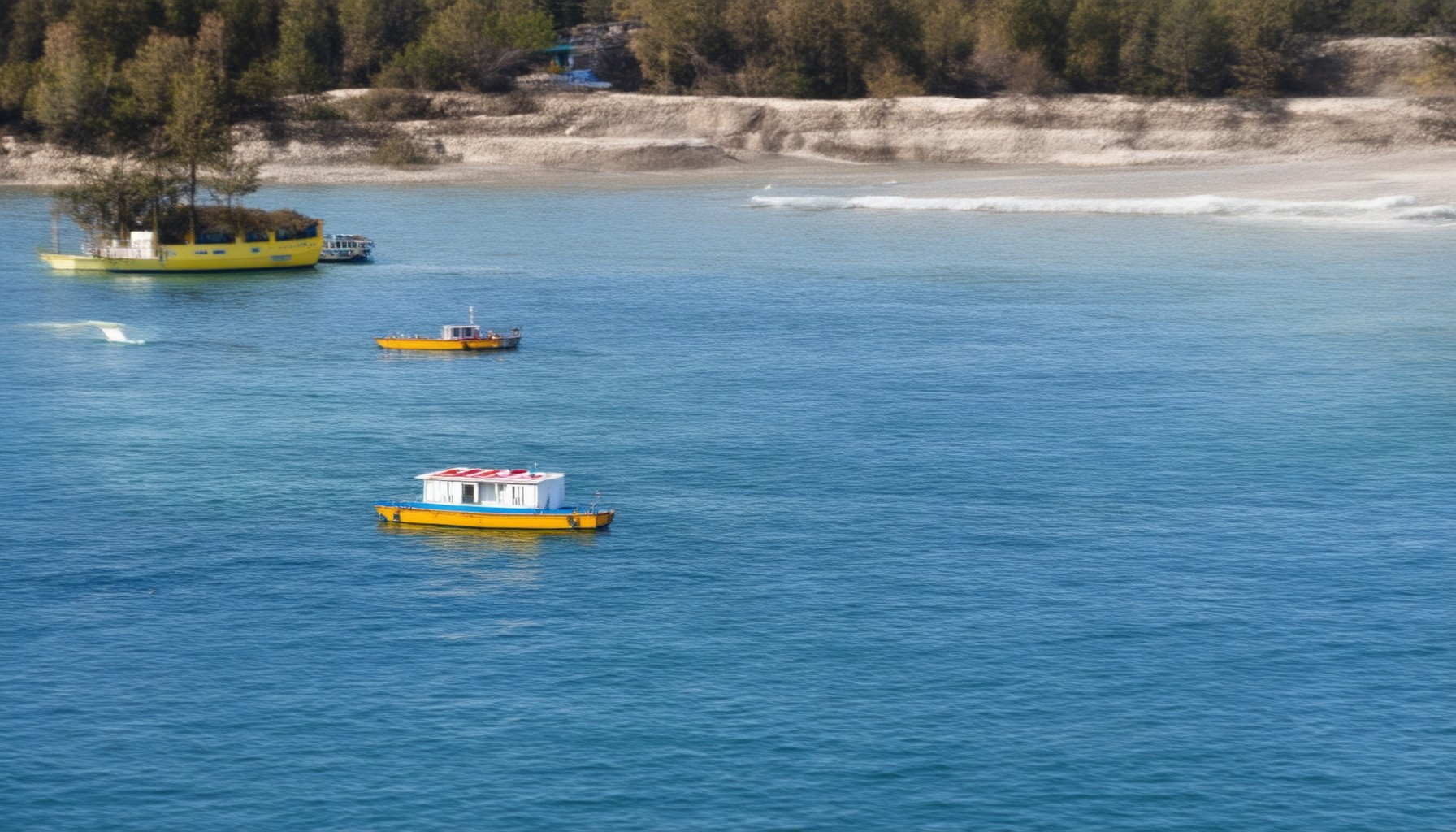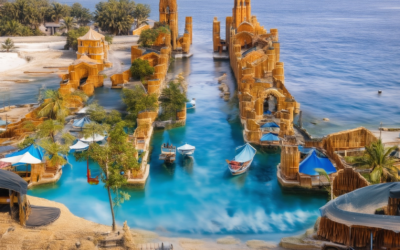Educational tourism, often referred to as edutourism, offers a unique blend of travel and learning experiences that has gained significant popularity in recent years. This innovative approach to education combines traditional classroom learning with immersive travel experiences, allowing individuals to explore diverse cultures, historical sites, and natural wonders while acquiring new knowledge and skills. Whether it’s studying abroad for academic credits, participating in cultural exchange programs, or embarking on guided educational tours, educational tourism provides a dynamic platform for personal growth and intellectual enrichment. From historical excursions to hands-on learning experiences, this form of tourism caters to a wide range of interests, making it an appealing option for students, professionals, and curious travelers alike. In this comprehensive guide, we’ll delve into the various types of educational tourism, examine real-world examples, and explore the numerous benefits that make it a valuable educational tool. By understanding the intricacies of educational tourism, readers can gain insights into how it can transform traditional learning methods and open up new possibilities for educational exploration.

What is Tourist Education?
Tourist education refers to a type of travel experience focused on learning and experiencing new cultures, histories, and traditions through immersive travel. Unlike traditional tourism, which often prioritizes relaxation or luxury, tourist education emphasizes intellectual growth, cultural understanding, and meaningful connections with local communities. This approach allows travelers to gain a deeper appreciation for the destinations they visit, fostering a sense of global awareness and empathy.
Key Components of Tourist Education
- Cultural Immersion : Tourist education often involves engaging with local cultures through activities like attending festivals, visiting museums, or interacting with locals. This helps travelers understand the customs, beliefs, and daily life of the people they encounter.
- Educational Tours : These tours are typically led by experts, such as historians, educators, or researchers, who provide guided insights into the history, architecture, and significance of landmarks and sites. This ensures travelers receive accurate and comprehensive information.
- Hands-On Experiences : Tourist education encourages participants to engage in activities that allow them to learn by doing. For example, visitors might learn traditional crafts, participate in community service projects, or take part in local culinary workshops.
Benefits of Tourist Education
- Personal Growth : Travelers often return with a renewed perspective on their own culture and a greater appreciation for diversity.
- Cultural Exchange : Tourist education fosters mutual understanding between travelers and locals, creating opportunities for cross-cultural dialogue and collaboration.
- Sustainable Tourism : By focusing on educational experiences, tourist education promotes responsible travel practices that minimize environmental impact and support local economies.
How to Choose the Right Tourist Education Program
When selecting a tourist education program, consider the following factors:- Program Duration : Some programs last weeks, allowing for extensive cultural immersion, while others may be shorter.- Guiding Staff : Ensure the tour is led by knowledgeable guides who can provide insightful commentary.- Activities Included : Look for programs that offer a variety of experiences, from educational lectures to interactive activities.- Accommodation : Opt for accommodations that reflect the local culture, such as homestays or traditional guesthouses.
By embracing tourist education, travelers can enrich their lives while contributing positively to the destinations they visit. This approach not only enhances the travel experience but also builds lasting connections with global communities.
Example of Edutourism
Edutourism combines education with travel, offering unique opportunities to learn in diverse settings. Here are some examples:
- School Trips: Students visit historical sites, museums, or science centers as part of their educational curriculum.
- Study Abroad Programs: Students immerse themselves in foreign cultures, experiencing local traditions while pursuing academic studies.
- Seminars and Workshops: Experts conduct sessions in exotic locations, blending knowledge with relaxation and networking.
- Skill Development Retreats: Individuals attend intensive workshops in fields like yoga, art, or cooking, often in beautiful natural settings.
- Language Immersion Programs: Learners live with native speakers, fully immersing themselves in the language and culture.
- Cultural Exchange Programs: Students stay with host families, gaining firsthand experience of local customs and lifestyle.

What is Learning Tourism?
Learning tourism, also known as educational tourism, combines travel with educational experiences. It involves visiting destinations with the primary purpose of learning, whether through formal study, cultural immersion, or skill development. This type of tourism allows individuals to gain knowledge while exploring new environments, making it a unique blend of education and adventure.
Benefits of Learning Tourism
- Cultural Exchange : Learning tourism fosters cross-cultural understanding by exposing travelers to different traditions, languages, and customs.
- Skill Development : Many learning tourism programs offer workshops, classes, or internships that help participants acquire new skills.
- Personal Growth : Immersive experiences in unfamiliar settings encourage self-discovery, confidence-building, and personal development.
- Travel with Purpose : Unlike traditional tourism, learning tourism often has a specific goal, such as attending a conference, volunteering, or participating in a cultural exchange program.
Examples of Learning Tourism Activities
- Study Abroad Programs : Students traveling to foreign countries to attend universities or participate in exchange programs.
- Language Immersion Trips : Travelers enrolling in language courses abroad to fully immerse themselves in the local culture.
- Cultural Exchange Visits : Groups participating in reciprocal visits between different countries to promote mutual understanding.
- Workshops and Conferences : Attending international events or seminars in locations that offer unique learning opportunities.
- Volunteer Travel : Engaging in community service projects in developing regions while gaining hands-on experience.
Related Resources
For more information on learning tourism and related travel experiences, visit Inxchan to explore our guides on global adventures and cultural exploration.
Examples of Competitors
- StudyAbroad
- Go Overseas
These platforms offer comprehensive resources for planning educational trips and learning experiences abroad.

What is Academic Tourism?
Academic tourism is a specialized form of tourism that involves staying at higher education institutions or research centers abroad for a period of less than one year. This type of tourism is often associated with educational travel, exchange programs, and collaborative projects between students, researchers, and professionals from different countries.
Key Characteristics of Academic Tourism:
- Temporary Stays : Participants typically stay in educational institutions for a limited duration, usually ranging from a few weeks to a year.
- Educational Purposes : The primary goal is to gain knowledge, skills, or experiences through interaction with diverse cultures, faculty, and peers.
- Cultural Immersion : Academic tourism often includes opportunities for cultural exchange, such as attending local events, visiting historical sites, and engaging with communities.
- Networking Opportunities : It provides chances to connect with global peers, professors, and industry experts, fostering professional relationships and collaborations.
Examples of Academic Tourism Activities:
- Studying abroad for a semester or year.
- Participating in international research projects or internships.
- Attending conferences, workshops, or seminars held at foreign universities.
- Volunteering or teaching in developing regions as part of an academic program.
Benefits of Academic Tourism:
- Global Exposure : Gaining firsthand experience of different cultures, languages, and social systems.
- Skill Development : Enhancing academic, professional, and soft skills through real-world applications.
- Career Advancement : Building international networks and gaining experience that can boost employability.
- Personal Growth : Broadening perspectives and developing adaptability through immersive experiences.
How It Differs from Other Tourisms:
While similar to educational travel, academic tourism is more focused on intellectual and professional development rather than general leisure activities. It often aligns with career goals and educational objectives.
Growing Popularity:
As globalization continues to connect nations, academic tourism has become increasingly popular among students, professionals, and researchers seeking to expand their horizons. Platforms like Inxchan offer resources and inspiration for planning meaningful academic travel experiences.
For more information and to explore opportunities, visit Inxchan and discover how academic tourism can transform your journey.
What is a Tourism Student?
A tourism student is someone enrolled in an educational program focused on the tourism industry, typically studying subjects like hospitality management, travel services, cultural studies, and marketing. These programs often culminate in a degree such as a Bachelor of Science in Tourism Management .
Key Components of Tourism Studies:
- Education : Tourism students usually pursue degrees that combine business, marketing, and hospitality management principles to prepare them for roles in managing travel agencies, hotels, or tourist attractions.
- Skills Development : Students learn valuable skills such as customer service, communication, problem-solving, and leadership, which are essential for working in the tourism sector.
- Industry Exposure : Many programs include internships or field trips to provide hands-on experience in popular destinations and industry practices.
Tourism students also gain knowledge about destination marketing, sustainable tourism practices, and the impact of technology on the travel industry. Graduates often find careers in various roles, including tour guide, hotel manager, travel agent, or event planner.
By pursuing tourism studies, students lay the foundation for a fulfilling career that combines passion for travel with professional expertise in managing and promoting global experiences.

Types of Tourism
Tourism encompasses a wide variety of experiences and activities, catering to different interests and preferences. Here are the primary types of tourism:
-
General Tourism
General tourism involves visiting destinations for leisure, adventure, or educational purposes. This category includes activities such as sightseeing, visiting historical sites, and participating in local events.
-
Cultural Tourism
Cultural tourism focuses on immersing oneself in the local culture, traditions, and history of a destination. Activities may include attending festivals, visiting museums, and learning about traditional customs.
-
Adventure Tourism
Adventure tourism is centered around thrilling activities and challenges, such as hiking, rock climbing, white-water rafting, and exploring remote areas. It appeals to those seeking excitement and physical exertion.
-
Eco-Tourism
Eco-tourism prioritizes environmental sustainability and involves traveling to natural areas to enjoy the landscape while minimizing ecological impact. Popular forms include wildlife safaris, eco-lodging, and guided nature tours.
-
Business Tourism
Business tourism involves traveling for professional reasons, such as attending conferences, meetings, or trade shows. This type often requires planning and coordination with event organizers.
-
Leisure Tourism
Leisure tourism is focused on relaxation and enjoyment, often involving beach vacations, spa treatments, and social activities. It is typically less structured than business or adventure tourism.
Inxchan encourages travelers to explore all these types of tourism to find their perfect adventure. Whether you prefer the thrill of adventure, the tranquility of nature, or the rich cultural experiences, there’s something for everyone. Plan your journey thoughtfully and discover the world’s diverse offerings!



0 Comments